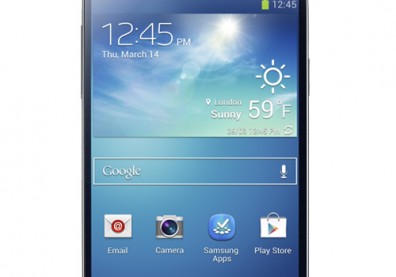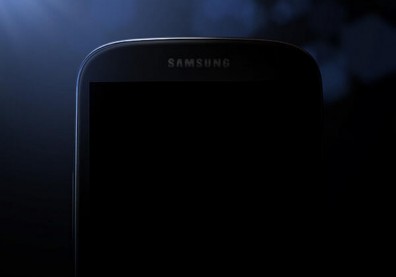Samung's Galaxy S4 is the first Android phone that stands a chance to usurp the iPhone's place as the preferred smartphone for gaming. It's not the new features or improved specs that are so exciting, but a peripheral that finally allows it to bridge the gap between smartphones and dedicated gaming handhelds.
After the announcement presentation Samsung showed a few peripherals for the S4, including the Samsung Wireless Game Pad. The game pad isn't particularly impressive: The shape and color scheme will strongly remind you of Microsoft's Xbox 360 controller, and the screen holster's clamshell design looks like the NVidia's handheld gaming PC, the "Shield." Samsung's game pad doesn't need to looks impressive, though, because If it works, and that's a big if, it has the potential to change the way we think about Android gaming. This could be the end of dedicated gaming handhelds.
A snap-on controller is the best possible solution for a standardized handheld gaming experience. PC gamers like to point out how similar, if inferior, consoles are to gaming PCs, and in many ways, they're right. By the same reasoning, gaming handhelds are basically smartphones without the phone. The touchscreen-device has created a wave of interesting and compelling gaming experiences all its own, but when tasked with emulating the classic hardcore games core gamers look for, they've always fallen short: Virtual joysticks and buttons just don't work. Smartphones could handle similarly compelling gaming experiences if they had a controller interface that matched the relative comfort and functionality of a handheld. With its handles and grips, a controller with a bolted-on screen like Samsung's game pad would easily be a superior ergonomic gaming experience.
The game pad isn't much bigger than a 3DS or a PS Vita, so it isn't more of an inconvenience to carry around than a gaming handheld. One of the biggest complaints for a device like Samsung's game pad comes from its size. Smartphone games are designed to be played in tiny intervals at literally a moment's notice. Getting a game pad out of your bag is just as inconvenient as carrying around an extra gaming device. That's completely true, and ultimately the game pad won't necessarily bring "serious" gaming to the majority smartphone audience. The Samsung game pad won't replace games like "Angry Birds" and "Cut The Rope," it makes the phone capable of handling games with complicated control schemes, like "Block Fortress" or "Real Racing."
Of course, the fidelity of the game pad hardware won't matter if Samsung can't get game developers to make games to support the controller: Luckily, Android-based consoles like Ouya and Game Stick are bringing controller-based Android games to them. Without making this into a conversation about the merits of the Ouya, the company is doing its best to build up Android game development. They're putting together a stable of developers to make games for their platform, all of which are making Android-based games meant to be played with a controller. While it will likely take a little extra work to port games to Touchwiz, Samsung's version of Android, the psychological leap has already been made: Android game developers will start making games with controllers in mind, and the library of game pad-compatible software will grow to justify the platform.
The Samsung game pad may not be the device that does it. As ever, a similar Apple-designed iPhone controller would put the two platforms' functionality back on an equal playing field, in which case iOS' superior game selection would return things to the status quo. As always, changing the way we think about games is a fragile process that requires great timing and, let's face it, a fair amount of luck. The fact that this one secondary device has put Samsung in a position to make waves in the gaming space is a testament to how pervasive the concept is.









